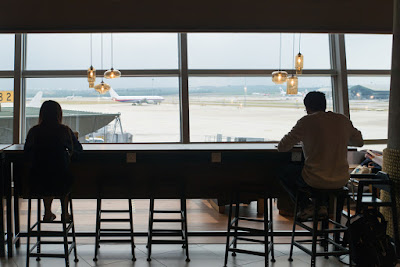You can never have too much support in early recovery, and it’s vital that you do anything you can do to protect your sobriety. The trappings of drugs and alcohol are pervasive; one wrong turn can put your program in jeopardy which is why those who succeed establish routines to mitigate their risk of encountering problems. Day in and day out, most people in recovery attend the same meetings, interact with a group of peers consistently, and work closely with a sponsor or recovery mentor of some kind.
Usually, persons in recovery begin and end their day in a similar manner to that of the day before, ad infinitum. You wake up, pray or meditate, go to work or school, attend a meeting (maybe two); for most people in recovery, prayer or meditation closes each day. The idea is that one limit the number of unforeseen variables that can impact your trajectory. The goal is longevity; recovery is not a sprint. If people hope to stay the course, then daily vigilance is a necessity.
There will be times, however, when your schedule or daily routine is hard to keep. Some of you will travel for work or vacation, need to leave town for one reason or another; even though you know what it takes to stay clean and sober, the task is made difficult by being away from your support network. If you have had to travel in early recovery, there’s a good chance that you quickly came to understand the importance of your peers. As with anything in life—If you want to learn how essential something is—you need only remove it from the picture for a moment.
Traveling In Recovery
Individuals working a program of recovery know to stay away from wet places, provided they don’t want to slip. People who spend a lot of time in bars are usually not long for recovery. Those with a history of drug use know to avoid people and places that are bound to precipitate a relapse. When you are in your typical environs, sticking to a routine is a form of autopilot that mitigates the risk of you ending up on a bar stool. When you break for lunch at work it’s unlikely that you’d go to a place where you used to drink for a sandwich. Why would you take the risk? Those who stay away from purveyors of booze in early recovery are less likely to get drunk, after all.
When you are traveling, it’s unlikely you will have associations with most of the restaurants (many of which have bars) you come across along the way. You may not know that walking into a particular eatery at the airport is risky. Since it is unlikely you are traveling with a fellow in recovery, it’s always best to avoid eating at a restaurant that sells alcohol while in early recovery. Many airport restaurants are designed around bars, enticing laid over flyers to buy overpriced drinks while they wait to board. Naturally, it’s best to avoid such traps; there are airport restaurants that don’t offer beer and spirits on the menu; given that you are isolated from your recovery peers, alcohol-free establishments are best for long-term recovery.
It’s easy to convince ourselves that our program is stronger than it is at times; we are not always best at reading our recovery pulse. Even if you think getting a burger at the airport bar is safe while you wait for your flight, just ask yourself, ‘is the choice worth risk?’ In some cases, just walking past such places can trigger an individual to drink; the pull of alcohol is strong for even a seasoned recovering alcoholic. If you find yourself desiring to imbibe, just “replay the tape,” you know where one beer leads. Pull out your phone and call your sponsor or another fellow in your support network. Keep calling until a connection is made, hearing the voice of your peer will remind you that you’re not alone. Your peer should be able to talk you back to earth and help you stay grounded for the remainder of the excursion. Attend the first meeting available once you get where you are going.
Traveling in recovery isn’t always free from program turbulence, but with help, you can find your center and make it where you are going—sober and safe.
Addiction Recovery
At Hope by the Sea, we can help you or a loved one begin the journey of abstinence. We offer many unique programs that give clients the necessary tools for working a program of lasting recovery. Please contact us for a free consultation.


